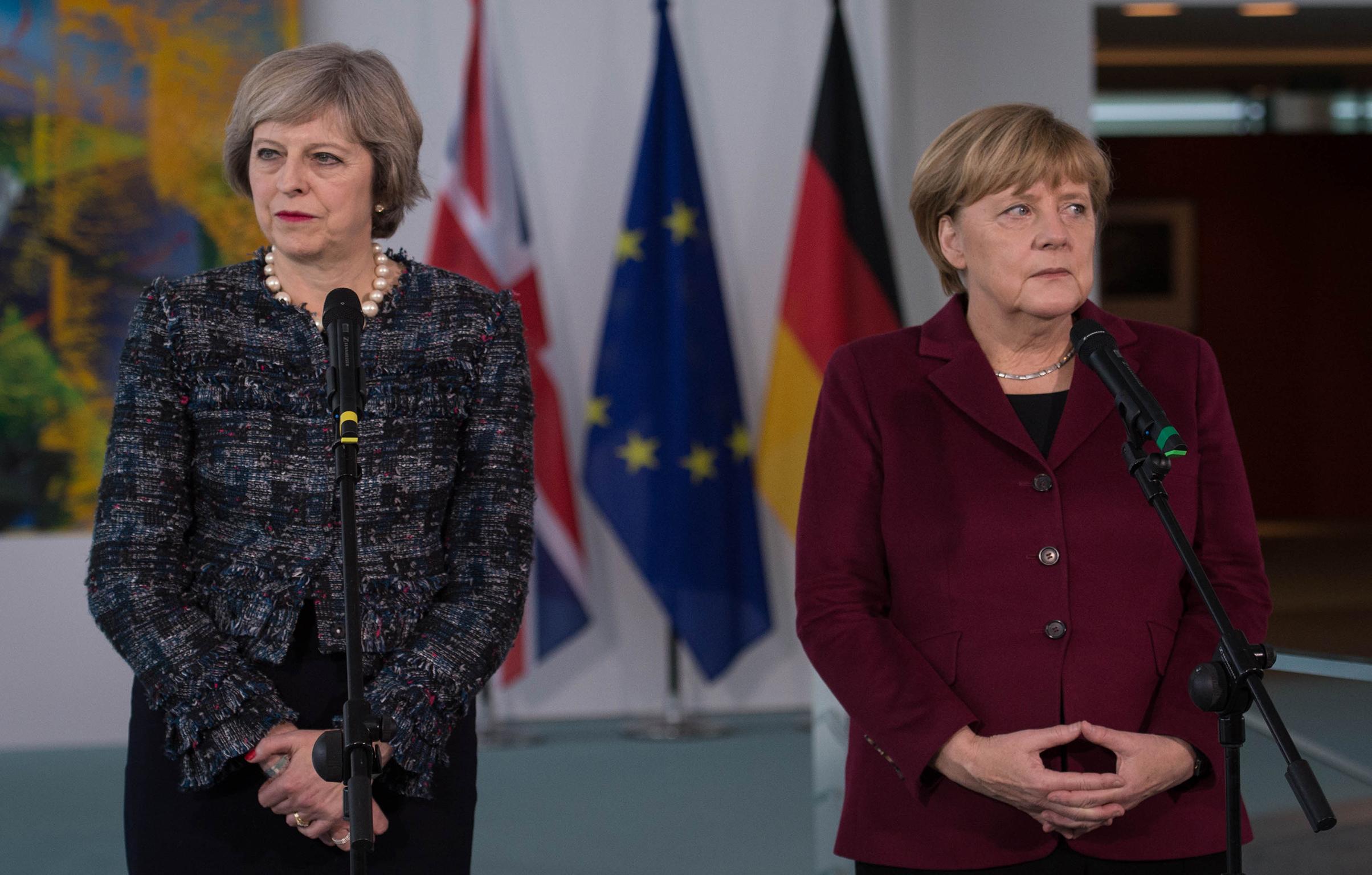Sexist slant in media representation of women 'needs to change'
Laura Bates, the founder of Everyday Sexism, says previous male leaders have not been treated in the same way as Theresa May, Hillary Clinton and Angela Merkel

Your support helps us to tell the story
From reproductive rights to climate change to Big Tech, The Independent is on the ground when the story is developing. Whether it's investigating the financials of Elon Musk's pro-Trump PAC or producing our latest documentary, 'The A Word', which shines a light on the American women fighting for reproductive rights, we know how important it is to parse out the facts from the messaging.
At such a critical moment in US history, we need reporters on the ground. Your donation allows us to keep sending journalists to speak to both sides of the story.
The Independent is trusted by Americans across the entire political spectrum. And unlike many other quality news outlets, we choose not to lock Americans out of our reporting and analysis with paywalls. We believe quality journalism should be available to everyone, paid for by those who can afford it.
Your support makes all the difference.Big improvements could be made in the way women are represented by the media following "massive focus" on the looks of famous figures including Theresa May, Hillary Clinton and Meghan Markle in 2016, according to the founder of the Everyday Sexism Project.
Laura Bates said previous male leaders have not been treated in the way Mrs May has, and that coverage of the female Prime Minister has had a "sexist slant".
The author added Mrs Clinton faced criticisms during the US election campaign that would probably not be made of men - such as references to the "Clinton cackle" or post-debate commentary on whether she was "smiling too much or hadn't smiled enough".
A "really important moment" was the strongly-worded statement put out by Prince Harry's communications secretary attacking the media over the "wave of abuse and harassment" his girlfriend Markle had experienced, Ms Bates said.
Reflecting on coverage of Mrs May, she added: "Just generally since Theresa May became Prime Minister we've seen a massive focus on looks, clothes, body, fashion, cooking, domesticity, marriage, in the coverage of her that we just simply don't see in the same way with male politicians and haven't seen with previous male prime ministers.
"As a whole I would definitely see a sexist slant of coverage of Theresa May ever since she became Prime Minister. But also, this is very much something that's impacting on all female politicians and I think we have to think about what the knock-on impact of it is, because we are living in a country where fewer than a third of elected MPs are female, where there are more male MPs now currently serving than there have ever been female MPs.
"And when people going into that voting booth to make a decision about who's representing them it matters if the information that they've been provided by the press about female politicians is about their shoes and their hairstyles and their handbags, and the information that they've heard about male MPs in the news is about their policies and voting records."
Looking back on coverage of Mrs Clinton, she said: "We saw an unwarranted focus on her clothes, on her make-up, on her hairstyle. But we also, with Hillary Clinton I think in particular, saw certain criticisms being made of her that wouldn't necessarily been made of a male opponent."
Ms Bates said the coverage of Harry's relationship with Suits actress Markle featured "dog whistle misogyny and racism", adding: "I think the fact that Prince Harry decided to make the unprecedented decision to call that out for what it was was a major positive actually in terms of somebody in a position of enormous privilege pointing out the inequality being faced in press coverage by somebody in a position that he would never be in. I think that was actually a really important moment."
In relation to the coverage of Markle, Ms Bates said she believes there were "really quite deliberate attempts to paint her in a particular light, which we absolutely have not seen with Prince Harry's white blonde-haired previous girlfriends".
Speaking more generally about the representation of women in the media, she said: "I certainly don't think that we're seeing massive strides of improvement I have to say. And I also think it's really important to see this in a broader context of other particular problems in the press coverage of women in particular. For example, the coverage of sexual violence in a way that is often dismissive or titillating."
Ms Bates, author of Girl Up, added: "I think there's a very long way to go. I think that there is a huge amount that can be improved on."
Join our commenting forum
Join thought-provoking conversations, follow other Independent readers and see their replies
Comments